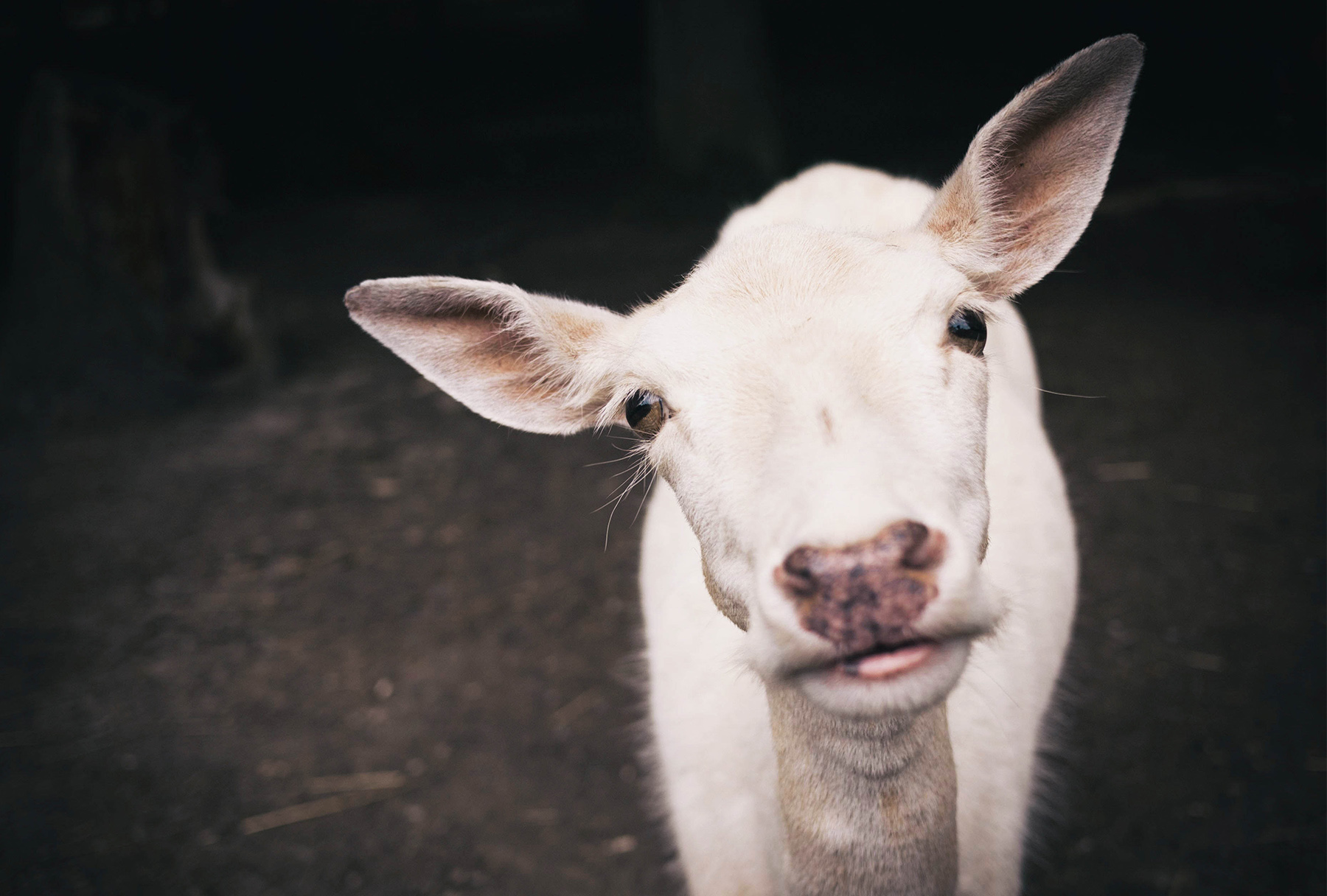Animal Welfare, Behaviour, Ethics and Law
Apply onlineAnimal Welfare, Behaviour, Ethics and Law at Winchester critically reflects upon contemporary uses of animals, and provides the academic skills and expertise needed to protect animals and advance their welfare. Winchester is a world leader in terms of the values held and discussed, such as compassion and social justice, which are central to the ethos of this course.

Course overview
You consider animal rights and the ethics around using animals for food, sport, and scientific research. How should society reflect those rights and ethics in our law-making and public policies? We scrutinise the many forms of animal use in different settings, such as farming, transportation and slaughter, laboratories, homes, zoos and various other entertainment locales, and about free-ranging animals in natural environments. As you progress through the programme, you master the skills and knowledge involved in assessing and ensuring the welfare of animals using a range of data and sound scientific processes.
The course is different from other comparable programmes in part because of the range of animals covered, including wild, free-ranging animals, invertebrates, pest animals, and the welfare problems associated with them. You are encouraged to develop communication skills in a range of styles, including posters, blogs, and multimedia presentations, and to share ideas about animal welfare outside of the academic setting.
What you need to know
Course start date
September
Location
Distance learning
Course length
- 1 year full-time
Apply
Apply online
Typical offer
A first or second-class honours degree
Fees
From £9,250 pa
Course features
- Examine and communicate the importance of animal welfare to academic and other audiences
- Programme partly based on the theoretical syllabus required for the European and US animal welfare speciality qualifications for veterinarians
- Learn from highly qualified, enthusiastic and renowned teachers
- For veterinarians pursuing specialist qualifications in animal welfare, this programme is partly based on the theoretical syllabus required for the European and US qualifications.
Course details
Suitable for Applicants from: UK, EU, World with a first or upper second honours degree
Learning and Teaching.
Modules are taught using online core notes with additional readings, videos and lecture notes provided. Students may participate in online seminars, and are guided in the creation of communication media such as academic and popular publications, Powerpoint and poster presentations, and online blogs.
The academics involved in this programme possess specialist skills and knowledge in each of the realms of animal welfare science, animal ethics and animal law. Strengths include significant experience in examining and critiquing contemporary social uses of animals, through both academic and popular media, and in working within both Non-Governmental Organisations and professional realms such as veterinary and legal practice, to advance animal welfare within wider society. Tutorials and other support is offered by these highly qualified, enthusiastic and internationally renowned scholars.
Modules.
Modules include: Animals and Society, Animal Issues, Animal Psychology and Behaviour, Research Methods, and a 10,000-word dissertation on your chosen topic. Classes are taught using the online virtual learning platform, in the form of core notes with additional readings, videos and lecture notes, making this course accessible to students anywhere in the world.
Assessment
Our validated courses may adopt a range of means of assessing your learning. An indicative, and not necessarily comprehensive, list of assessment types you might encounter includes essays, portfolios, supervised independent work, presentations, written exams, or practical performances.
Assessments include written assignments, Powerpoint and poster presentations, online blogs, participation in discussions, and a 15,000-word dissertation on a topic of interest to the student, chosen in consultation with a supervisor.
We ensure all students have an equal opportunity to achieve module learning outcomes. As such, where appropriate and necessary, students with recognised disabilities may have alternative assignments set that continue to test how successfully they have met the module's learning outcomes. Further details on assessment types used on the course you are interested in can be found on the course page, by attending an Open Day or Open Evening, or contacting our teaching staff.
Feedback
We are committed to providing timely and appropriate feedback to you on your academic progress and achievement in order to enable you to reflect on your progress and plan your academic and skills development effectively. You are also encouraged to seek additional feedback from your course tutors.
Modules
Please note the modules listed are correct at the time of publishing. The University cannot guarantee the availability of all modules listed and modules may be subject to change. The University will notify applicants of any changes made to the core modules listed. For further information please refer to winchester.ac.uk/termsandconditions
Entry requirements
Normally a recent first or upper second-class Honours degree incorporating a related subject in the life or health sciences or humanities, or professional experience in the area of study (for example, within animal welfare charities, the veterinary profession, or as a Council Animal Welfare Officer).
If English is not your first language: IELTS 6.0 overall with a minimum of 5.5 in writing or equivalent.
Personal Computing Requirements.
Due to the Distance Learning deliverance of the course there are minimum personal computing requirements. Please view the Distance Learning Policy.
Applications need to be submitted before the deadline published on our website. Late applications can be accepted throughout the remainder of the application year, for more information see our How to Apply section.
If you are living outside of the UK or Europe, you can find out more about how to join this course by contacting our International Recruitment Team via our International Apply Pages.
2025/2026 Course Tuition Fees
| UK / Channel Islands / Isle of Man / Republic of Ireland |
International |
|
|---|---|---|
| Full-time | £9,250 | £11,820 |
| Part-time | £4,625 | £5,910 |
| Total | £9,250 | £11,820 |
Additional tuition fee information
If you are a UK student starting your degree in January / September 2025, the first year will cost you £9,250**.
If finance is a worry for you, we are here to help. Take a look at the range of support we have on offer. This is a great investment you are making in your future, so make sure you know what is on offer to support you.
**The University of Winchester will charge the maximum approved tuition fee per year.
Additional costs
Additional costs
As one of our students, all of your teaching and assessments are included in your tuition fees, including, lectures/guest lectures and tutorials, seminars, laboratory sessions and specialist teaching facilities. You will also have access to a wide range of student support and IT services.
There might be additional costs you may encounter whilst studying. The following highlights the mandatory and optional costs for this course:
Optional:
Core Texts
Some Core Texts are available from the University Library; however some students prefer to purchase their own copies. Core Texts can be bought second hand, or as an ebook which can often reduce this cost. Indicative cost is £100-£250.
SCHOLARSHIPS, BURSARIES AND AWARDS
We have a variety of scholarship and bursaries available to support you financially with the cost of your course. To see if you’re eligible, please see our Scholarships and Awards.
CAREER PROSPECTS
Graduates go on to work as animal behaviourists, within animal welfare and advocacy organisations, zoos, sanctuaries and other organisations requiring knowledge of animal management and welfare, with governmental departments working on animal issues, with agencies aiming to uphold welfare standards, and with commercial organisations seeking to introduce such standards to their agricultural suppliers.
OUR CAREERS SERVICE


“I love the flexibility of distance learning on this course and how it allows me to connect with students from a broad range of backgrounds.”

